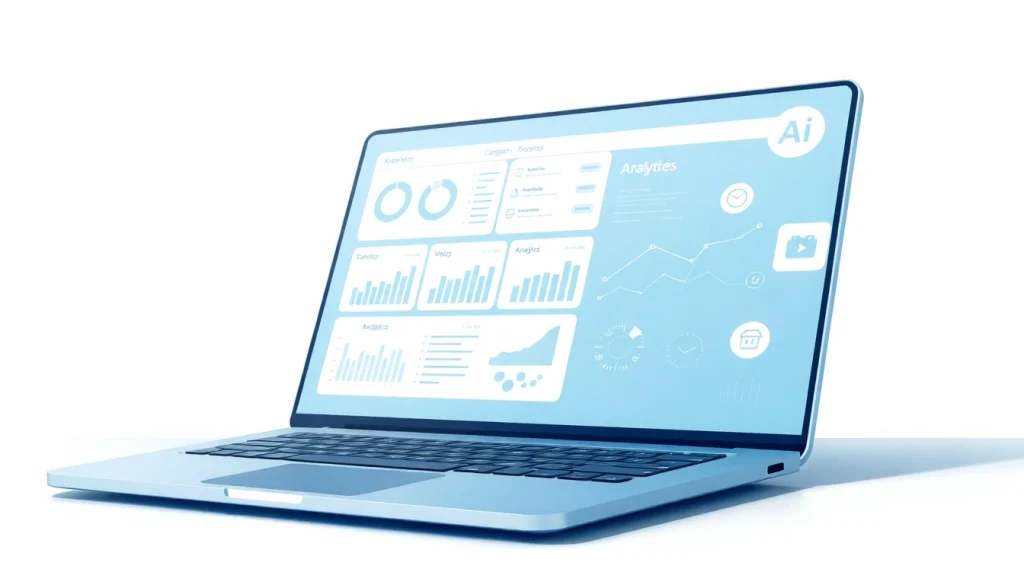Enhancing Marketing Efficiency with AI Marketing Agents: A Comprehensive Guide

Understanding AI Marketing Agents
Definition of AI Marketing Agents
AI marketing agents are sophisticated software tools that leverage artificial intelligence to automate specific marketing tasks. These agents can perform functions such as customer segmentation, campaign management, and personalized content delivery. While they require some degree of human oversight, these tools offer an unprecedented level of autonomy in executing marketing strategies, providing businesses with a competitive edge in increasingly crowded marketplaces. By utilizing AI marketing agents, organizations can substantially enhance their marketing efficiency and effectiveness.
How AI Marketing Agents Enhance Efficiency
AI marketing agents significantly improve operational efficiency by automating repetitive and time-consuming tasks. For example, they can quickly analyze vast amounts of data to identify trends, automate email marketing campaigns, or optimize ad placements based on real-time performance metrics. This automation allows marketing professionals to focus on strategic thinking and creative problem-solving rather than getting bogged down by mundane tasks. Furthermore, the speed at which AI processes information enables more agile decision-making, allowing marketers to respond swiftly to market changes.
The Role of Human Oversight in AI Marketing
While AI marketing agents operate with a significant degree of independence, human oversight remains essential. Marketers play a crucial role in defining the strategic goals of campaigns and ensuring that the AI tools align with brand messaging and ethical standards. Additionally, human intervention is often necessary for nuanced decision-making, particularly in areas where intuition and emotional intelligence are key, such as customer relationship management. Thus, the most effective marketing strategies integrate the analytical prowess of AI with the creativity and empathy of human professionals.
Benefits of Implementing AI Marketing Agents
Streamlining Marketing Tasks
One of the primary advantages of AI marketing agents is their ability to streamline various marketing tasks. By automating functions like email campaign management, social media posting, and performance tracking, AI allows marketing teams to operate more efficiently. Automated agents can handle standard processes, leaving the marketing team to focus on strategy formulation. For instance, AI tools like HubSpot and Salesforce provide integrated platforms that assist in executing multi-channel marketing strategies without the tedious manual labor often involved.
Real-Time Data Analysis and Insights
Data is the backbone of any marketing strategy, and AI marketing agents excel in real-time data analysis. These tools can sift through vast amounts of data to deliver actionable insights that inform marketing strategies. By identifying patterns in consumer behavior, preferences, and engagement, AI agents help marketers craft personalized experiences tailored to individual customer journeys. For example, platforms like Google Analytics and IBM Watson Marketing utilize AI to provide predictive insights that guide future campaign efforts.
Personalization at Scale
In an era where personalization is key to customer satisfaction, AI marketing agents enable businesses to deliver personalized content at scale. By leveraging machine learning algorithms, these agents can analyze customer data from multiple sources—including social media, website interactions, and previous purchases—to craft tailored content suggestions. This capability enhances customer experiences, as personalized recommendations resonate more profoundly with consumers, ultimately leading to increased engagement and conversion rates. A well-known example would be Netflix’s recommendation algorithm, which effectively drives viewer engagement by suggesting content that aligns with individual viewing habits.
Choosing the Right AI Marketing Agent
Key Features to Look For
When selecting an AI marketing agent, several essential features should be considered to ensure optimal performance. Key attributes include:
- Integration Capabilities: The ability of the AI tool to integrate seamlessly with existing platforms (e.g., CRM systems, email marketing platforms) is crucial for unified operations.
- User-Friendliness: A user-friendly interface enables marketing teams to navigate and utilize tools effectively without extensive training.
- Customization Options: Flexibility in adapting features to align with specific business needs allows for tailored marketing strategies.
- Analytics and Reporting: Robust analytics functionalities provide valuable insights into campaign performance, aiding in continuous improvement.
- Scalability: As businesses grow, their AI marketing agents should be able to scale accordingly, facilitating increased demands without compromising performance.
Comparison of Top AI Marketing Tools
There are numerous AI marketing tools available, each with unique features, advantages, and capabilities. Here’s a brief overview of some of the most reputable solutions currently dominating the market:
- HubSpot: Known for its powerful CRM and marketing automation tools, HubSpot uses AI to optimize user engagement and lead nurturing.
- Salesforce Einstein: This tool integrates AI seamlessly into the Salesforce CRM platform, helping marketers predict customer behavior and automate actions accordingly.
- Adext AI: Specifically designed for ad campaigns, Adext automatically allocates budgets across channels to maximize performance based on real-time data.
- Mailchimp: With AI-driven insights, Mailchimp enhances email marketing strategies by suggesting optimal send times and personalized content.
- Persado: This platform employs AI-generated language that resonates with target audiences, improving message effectiveness and engagement.
Evaluating Vendor Reputation and Support
Beyond features and functionalities, the reputation of the vendor is integral when choosing an AI marketing agent. Researching customer reviews, case studies, and testimonials can provide valuable insight into the vendor’s reliability and the effectiveness of their product. Additionally, evaluating the level of customer support offered is crucial; a responsive support team can assist in addressing technical issues swiftly, facilitating a smoother operational experience. Regular updates and new feature rollouts also indicate a company’s commitment to continuous improvement.
Potential Challenges with AI Marketing Agents
Understanding the Limitations of AI Technology
Despite their impressive capabilities, AI marketing agents are not devoid of limitations. For instance, AI systems may struggle with tasks requiring complex decision-making or emotional intelligence. Moreover, their predictive abilities depend on the quality and scope of the data they analyze; insufficient or biased data can lead to inaccurate insights. It’s crucial for organizations to be aware of these limitations and to maintain a balanced perspective regarding the capabilities of AI tools.
Ensuring Data Privacy and Security
As reliance on AI marketing agents increases, so does the importance of addressing data privacy and security concerns. With the handling of significant amounts of customer data, organizations must comply with regulations like GDPR and CCPA. Implementing advanced security measures, including data encryption and secure access protocols, is imperative to safeguarding sensitive customer information. Regular audits and transparent data handling practices can further build trust with consumers and stakeholders.
Managing Change within Your Marketing Team
Integrating AI marketing agents into existing marketing workflows can pose challenges, particularly in terms of change management. Marketing teams may experience resistance or anxiety about embracing AI technologies, stemming from misconceptions about job displacement. Clear communication regarding the intended benefits of AI tools, alongside ongoing training and support, can mitigate resistance and foster a culture of innovation. Encouraging collaboration between AI tools and marketing professionals can yield better outcomes and overall morale.
Future Trends in AI Marketing Agents
Innovations on the Horizon
As technology continues to evolve, so too do the capabilities of AI marketing agents. Innovations like natural language processing, advanced analytics, and machine learning are set to transform the landscape further. Future AI marketing agents are expected to offer even more sophisticated capabilities, such as hyper-personalization, where customer experiences are tailored to minute preferences and behaviors. The integration of AI with other emerging technologies, such as augmented reality and Internet of Things (IoT), will also contribute to more engaging and interactive customer experiences.
The Growing Importance of AI in Marketing Strategies
With the rapid growth of AI adoption across various industries, its importance in marketing strategies cannot be overstated. Businesses that successfully harness AI will gain a competitive edge, as they can respond swiftly to consumer trends and optimize their marketing efforts based on real-time data. The shift toward data-driven marketing decisions will only intensify, creating a landscape where those leveraging AI tools will be better positioned to thrive.
Adaptation to Evolving Consumer Preferences
The digital marketing landscape is continually evolving, influenced by changing consumer preferences and technological advancements. As consumer behavior becomes increasingly data-driven, organizations will need to adapt their marketing strategies accordingly. AI marketing agents can provide valuable insights into emerging trends, helping marketers stay ahead of the curve. By focusing on predictive analytics and consumer sentiment analysis, businesses can tailor their offerings and experiences to meet ever-changing expectations, ensuring sustained engagement and loyalty.







